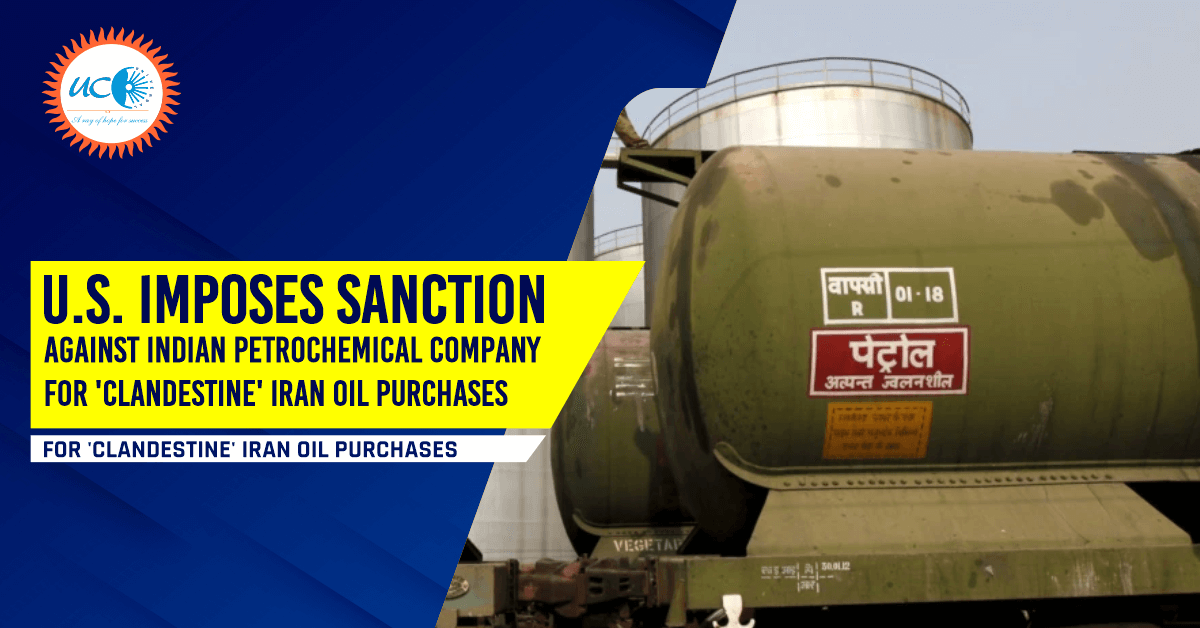UPSC Essentials: U.S. imposes sanction against Indian petrochemical company for ‘clandestine’ Iran oil purchases
What is the News?
The US has imposed sanctions on Mumbai-based firm Tibalaji Petrochem Pvt. Ltd for carrying out the oil trade with Iran.
Background
- In 2018, the U.S administration decided to walk out of the nuclear deal or Joint Comprehensive Plan of Action (JCPOA) with Iran. It has also imposed several sanctions on Iran.
- India has officially refused to endorse the “unilateral sanctions” of the U.S. But India stopped buying oil from Iran in 2019 in the wake of sanctions imposed by the US.
- Prior to this, India was the second-largest buyer of Iranian oil after China.
What is the significance of this US sanction on an Indian-based firm?
This is the first time that an India-based entity has been sanctioned by the US for involvement in dealing with Iranian petroleum products.
About JCPOA:
- Commonly as the Iran nuclear deal or Iran deal, is an agreement on the Iranian nuclear program reached in Vienna on July 14, 2015, between Iran and the P5+1 (the five permanent members of the United Nations Security Council—China, France, Russia, United Kingdom, United States—plus Germany) together with the European Union.
- Under JCPOA, Iran agreed to eliminate its stockpile of medium-enriched uranium, cut its stockpile of low-enriched uranium by 98%, and reduce by about two-thirds the number of its gas centrifuges for 13 years.
- For the next 15 years Iran will only enrich uranium up to 3.67%. Iran also agreed not to build any new heavy-water facilities for the same period of time.
- Uranium-enrichment activities will be limited to a single facility using first-generation centrifuges for 10 years. Other facilities will be converted to avoid proliferation risks.
- To monitor and verify Iran’s compliance with the agreement, the International Atomic Energy Agency (IAEA) will have regular access to all Iranian nuclear facilities.
- The agreement provides that in return for verifiably abiding by its commitments, Iran will receive relief from U.S., European Union, and UNSC nuclear-related sanctions.
On 5 January 2020, in the aftermath of the Baghdad Airport Airstrike that targeted and killed Iranian general Qassem Soleimani, Iran declared that it would no longer abide by the limitations of the deal but would continue to coordinate with the IAEA, leaving open the possibility of resuming compliance.






